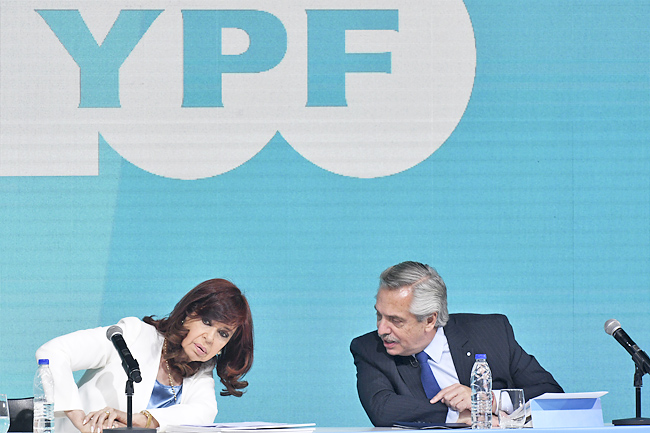BUENOS AIRES, ARGENTINA (AP) – The abrupt resignation of Argentina’s economy minister has engulfed the country in an all-too familiar anxiety that flows from its periodic financial crises in recent decades.
The departure of moderate Martín Guzmán on Saturday also gave another sign of the growing isolation of President Alberto Fernández within his own governing coalition while Vice President Cristina Fernández gains influence. Silvina Batakis, a left-leaning ally of the vice president, was tapped on Sunday as the new economy minister.
“What happened over the weekend was another twist in the progressive advance by Cristina on the administration,” a political consultant Carlos Fara said on Tuesday.
“It was a process that had been going on from before but started to become more evident over the last 60 days as she continued to isolate the president more and more.”
Whatever the ins-and-outs of power, it’s clear many Argentines are unhappy with the government.
Opinion polls give the president low approval ratings and a clear majority of respondents say the country is headed in the wrong direction.

Cristina Fernández, a former president who continues to hold a strong base of support, selected Alberto Fernández, who lacked political clout for his own candidacy, to lead the ticket with her as vice president shortly before the 2019 election.
The alliance was a recognition that she did not have the popularity to win on her own, while it allowed her to marshal her supporters for a united drive by left-of-centre factions in defeating Mauricio Macri, the conservative who had replaced her as president.
But the tenuous coalition quickly began to sour, and in the past few months tensions have fully broken out in the open, with the vice president, who is not related to the president, openly criticising him in public speeches.
Guzmán was seen as a key ally of the president within the Cabinet and his resignation letter released just as the vice president was giving another speech criticzing the administration made clear that part of the reason he was quitting was a lack of political support.
“Guzmán provided a resistance to Cristina’s influence in economic policy,” said Lucas Romero, the head of Synopsis, a local political consulting firm. The loss of Guzmán was particularly significant because the president had already seen several other allies depart the government, and his pick of Guzmán’s successor underlined the delicate balancing he is having to perform in the coalition government.
In her first public comments after being sworn in Monday, Batakis thanked the vice president, among others, for their confidence in her.
And while she offered assurances of continuity with the government’s economic plan, Batakis also said she was willing to discuss the idea of a universal basic income for Argentina’s poorest – an issue that Cristina Fernández has recently championed.







